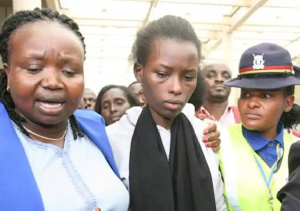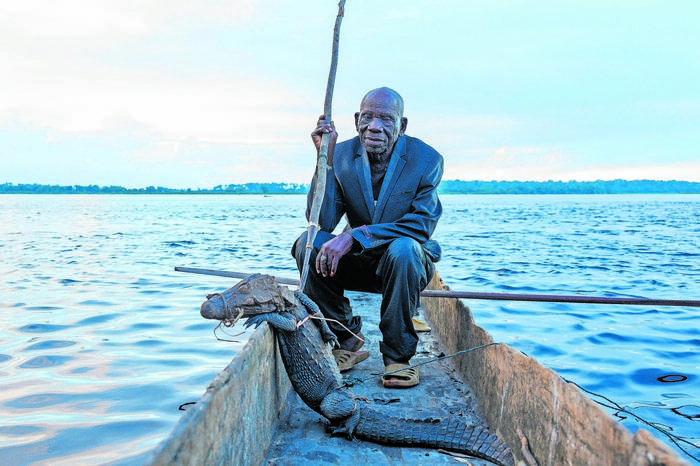‘Mine is just a tip of the iceberg’ – Maltreated Kenyan woman back home from Saudi Arabia

“I left Kenya to go to Saudi Arabia with the hope of getting a better life. Mine is just a tip of the iceberg, people are suffering…. I am pleading with the government to do something, help them, they are suffering,” Chepkemoi told reporters.
Chepkemoi, 24, said she endured “psychological abuse”, adding that her employer informed her that she had been “bought” and could be subjected to any form of treatment.
Clara Cherotich, who is Chepkemoi’s mother, welcomed her daughter’s return, saying she was “very grateful.” She however said her daughter’s condition was “critical.”
Prior to her return home, photos of Chepkemoi were circulated on social media throughout the weekend. The images showed her looking dull and skinny. Her appearance was said to be the opposite of how she looked before she departed Kenya for Saudi Arabia in June 2021.
Chepkemoi’s condition spurred her family and Kenyans on social media to call for her release, per BBC. In response to the outcry, the Kenyan embassy in Riyadh said the former university student was taken from her employer’s residence and transported to a leading hospital for evaluation. She was ultimately given the all-clear at a specialized hospital she was subsequently referred to.
“The only difference is that I got the courage to speak out. It’s a shame being told that there is nothing your government can do,” Chepkemoi told reporters.
A 2021 report by the foreign affairs ministry stated that 89 Kenyan nationals passed away in Saudi Arabia. Majority of the Kenyan nationals who died worked as domestic workers in the Arab country.
Brighton Yegon, who is Chepkemoi’s local MP, was part of the people who met her at the airport. He said he will propose a motion seeking to ban the exportation of workforce to Saudi Arabia.
Kafala visa sponsorship system
Driven by the lack of opportunities at home, Africa’s young people travel to the Middle East in droves in search of employment. Hundreds of thousands of them are now employed throughout the region, many of them as maids.
However, reports of mistreatment and abuse of Africans by their bosses has prompted a number of countries to ban the recruitment of their citizens as domestic hires in the Middle East.
Most domestic workers from Africa get their jobs through the kafala visa sponsorship system, which requires migrant workers to seek permission from employers before relocating or changing jobs. The system ties the immigration status of a worker to the employer, giving the employer the power to repatriate them at will and even stop them from leaving the country.
CLICK HERE TO DOWNLOAD PRESS RADIO MOBILE APP

Human rights groups have condemned the kafala system, describing it as a form of modern-day slavery. There have been reports of domestic employees forced to work for very long periods with little or no breaks in between. Workers are often deprived of food and other basic necessities while being physically and verbally abused.
Source: face2faceafrica.com






